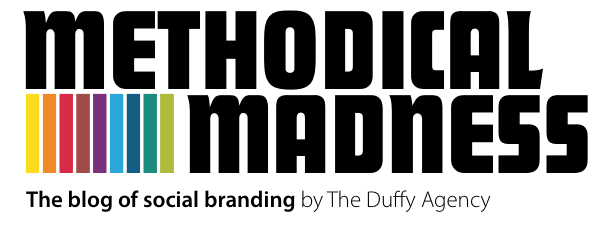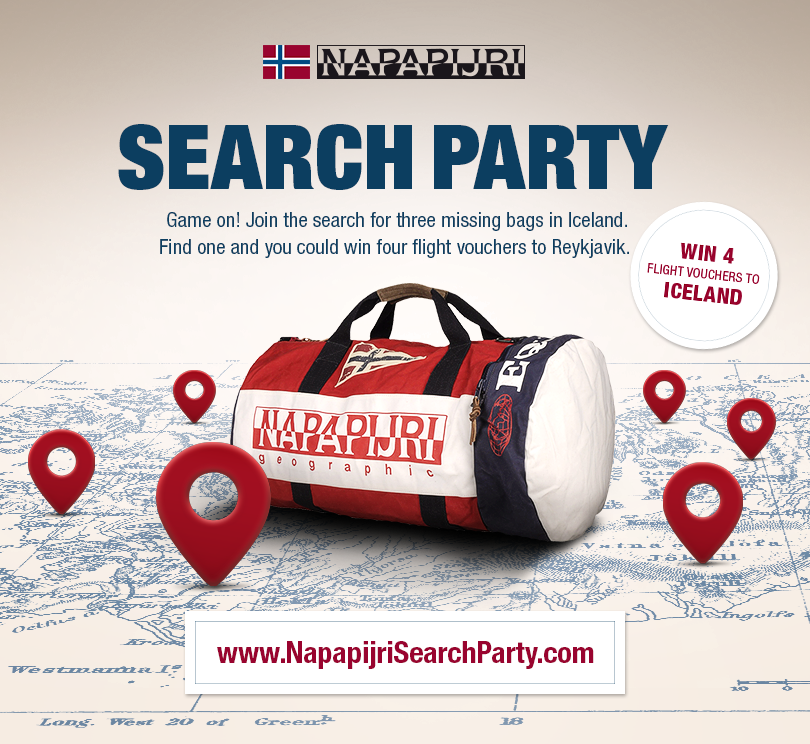Gampaigns: How to win the brand engagement game
 Wednesday, October 23, 2013 at 11:37AM
Wednesday, October 23, 2013 at 11:37AM What do you call an online campaign that is centered around a game or contest? You guessed it: “Gampaign”. Today we launched our latest game, “Search Party”, for our fashion client Napapijri. The premise is simple: While shooting their Fall/Winter collection in Iceland, they left 3 bags behind. Create a search party and find the bag using an interactive map and you could win tickets for 4 to Iceland.
Using games and contests to build awareness and otherwise promote a brand may not be a new idea. But having real-time digital interaction and viral distribution platforms like Facebook make these marketing activities more relevant now than ever.
Using game tactics in online marketing has become so popular that pundits have named the practice “gamification”. But a gamified approach doesn’t necessarily mean you are being silly or frivolous. It simply means that you are using elements of personalization, interactivity, challenge, competition, achievement, score keeping, reward, and/or recognition in your marketing communication. Why? Because these tactics have the power to boost engagement through the roof. For example we have used these techniques to motivate patients to take their prescription medications correctly, the public to donate to charity, and graduate students to dedicate more time to their studies. It wasn’t so much that we turned these activities into games as we employed well-established motivational tactics that work.
That being said, “gamification” is still often criticized by marketers who feel their brand or category is “too serious” to be associated with games. Game techniques are certainly not for every situation. For instance someone shouldn’t have to solve a riddle to access customer support. However, having successfully applied game-based techniques to everything from fashion to pharma, we’ve yet to find a brand that could not employ these techniques successfully to increase engagement with customers. Although game tactics may look deceptively trivial, they can be executed to suit even the most somber of brands while delivering very serious marketing results.
So what are you waiting for? Get your game on and see if your next campaign should be a gampaign instead.
P.S. For our non-EU readers you’ll notice that the Search Party game was limited to a number of European countries for legal reasons. If you would like to see a demo of how the game works just give us a call and we’d be happy to give you a walk through.
 Email Article |
Email Article |  Post a Comment | tagged
Post a Comment | tagged  Gamification | in
Gamification | in  Applications,
Applications,  Campaign,
Campaign,  Engagement,
Engagement,  Gampaigns,
Gampaigns,  branding,
branding,  social media
social media 

Reader Comments